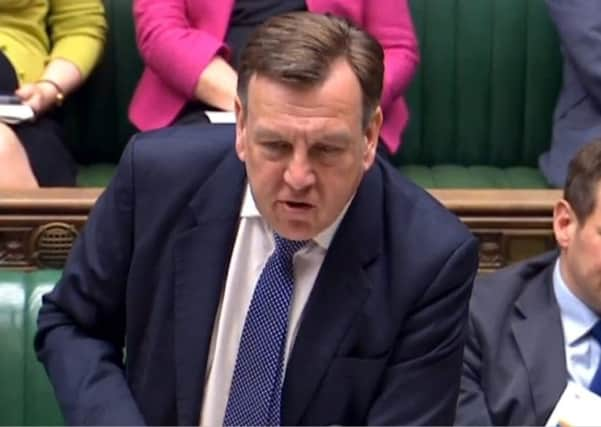BBC to be subject of Holyrood scrutiny under new Royal Charter
This article contains affiliate links. We may earn a small commission on items purchased through this article, but that does not affect our editorial judgement.


Unveiling his plans for a new Royal Charter, Mr Whittingdale said Scotland would also be given a voice at the heart of decision making in the Corporation.
Producing distinctive content that was suitable for viewers and listeners north of the Border was a theme of the Royal Charter.
Advertisement
Hide AdAdvertisement
Hide AdMr Whittingdale’s plans were given a cautious welcome by the Scottish Government, but it added that they did not go far enough.
The new Royal Charter included plans to name employees and freelancers who earn more than £450,000 through their work with the public sector broadcaster. Their salaries will be revealed in bands and the BBC will continue to publish details of managers who earn more than £150,000.
The “iPlayer loophole” will be closed so people watching BBC programmes on-demand must have a TV licence.
The licence fee will continue for at least 11 years, and will increase in line with inflation until 2021-22. It is “likely to become less sustainable” in the longer term.
There are no plans to replace the licence fee with a subscription model, but the BBC will be given an opportunity to consider and explore whether to make any of its content available on a subscription-only basis.
Ofcom will become the external, independent regulator of the BBC.
There will be a new “unitary board” – replacing the external BBC Trust and internal BBC Executive – responsible for ensuring that the corporation’s “strategy, activity and output are in the public interest”.
The unitary board would have up to 14 members, with the BBC responsible for appointing at least half its members and the UK Government no more than six.
Advertisement
Hide AdAdvertisement
Hide AdMr Whittingdale’s opponents argued the make-up of the board could see the Government exert undue influence on the Corporation.
Scotland is to have representative on the board, as will the other devolved nations. In addition, there will be a subcommittee of the board for each nation.
Under the plans, the Scottish Government will have a formal and consultative role in any Charter Review, including providing them with copies of the draft Charter to lay beforeHolyrood.
The BBC will lay its annual reports and accounts before Scotland’s Parliament. The BBC will also be required to submit reports to, and appear before, Committees within the Scottish Parliament on the same basis as the UK Parliament. Mr Whittingdale said: “The BBC is our national broadcaster, acting in the interests of the whole of the UK. But it must also reflect the democratic make-up of the UK. These reforms help make sure the BBC creates the highest quality, distinctive content for all audiences, including those in Scotland.”
A letter from BBC Director General Lord Hall to Scottish Culture Secretary Fiona Hyslop outlined the broadcaster’s ambition to make 50 per cent of all network television outside London and 17 per cent in the devolved nations.
Lord Hall said: “In the last Charter period, we transformed how much content we make in the Nations. But we accept those programmes have not done enough to reflect each Nation to itself, and to the rest of the country. In the next Charter, we want to transform that cultural impact of the BBC.”
Fiction, especially TV drama, has been earmarked for the centre of that transformation.
In Scotland, however, particular emphasis is to be put on comedy. Each nation is to have a drama commissioning editor and in Scotland there will also be a comedy commissioner “to reflect the rich history of comedy output there”.
Advertisement
Hide AdAdvertisement
Hide AdThere is also a pledge to strengthen Scotland as a Centre for Excellence for factual production. The BBC’s commitment to Gaelic broadcasting is to be maintained and spending in the devolved nations is to be protected relative to other areas.
The proposals will be underpinned byobligations the BBC is required to meet and report against in serving their audiences in Scotland.
DOWNLOAD THE SCOTSMAN APP ON ITUNES OR GOOGLE PLAY